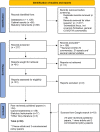Governing a pandemic: biopower and the COVID-19 response in Zimbabwe
- PMID: 36585029
- PMCID: PMC9808754
- DOI: 10.1136/bmjgh-2022-009667
Governing a pandemic: biopower and the COVID-19 response in Zimbabwe
Abstract
Introduction: The extraordinary explosion of state power towards the COVID-19 response has attracted scholarly and policy attention in relation to pandemic politics. This paper relies on Foucault's theoretical differentiation of the political management of epidemics to understand how governmental framing of COVID-19 reflects biopolitical powers and how power was mobilised to control the pandemic in Zimbabwe.
Methods: We conducted a scoping review of published literature, cabinet resolutions and statutory instruments related to COVID-19 in Zimbabwe.
Results: The COVID-19 response in Zimbabwe was shaped by four discursive frames: ignorance, denialism, securitisation and state sovereignty. A slew of COVID-19-related regulations and decrees were promulgated, including use of special presidential powers, typical of the leprosy model (sovereign power), a protracted and heavily policed lockdown was effected, typical of the plague model (disciplinary power) and throughout the pandemic, there was reference to statistical data to justify the response measures whilst vaccination emerged as a flagship strategy to control the pandemic, typical of the smallpox model (biopower). The securitisation frame had a large influence on the overall pandemic response, leading to an overly punitive application of disciplinary power and cases of infidelity to scientific evidence. On the other hand, a securitised, geopolitically oriented sovereignty model positively shaped a strong, generally well execucted, domestically financed vaccination (biopower) programme.
Conclusions: The COVID-19 response in Zimbabwe was not just an exercise in biomedical science, rather it invoked wider governmentality aspects shaped by the country's own history, (geo) politics and various mechanisms of power. The study concludes that whilst epidemic securitisation by norm-setting institutions such as WHO is critical to stimulate international political action, the transnational diffusion of such charged frames needs to be viewed in relation to how policy makers filter the policy and political consequences of securitisation through the lenses of their ideological stances and its potential to hamper rather than bolster political action.
Keywords: Health policy; Health systems; Public Health; Review.
© Author(s) (or their employer(s)) 2022. Re-use permitted under CC BY-NC. No commercial re-use. See rights and permissions. Published by BMJ.
Conflict of interest statement
Competing interests: None declared.
Figures
References
-
- World Health O . WHO director-general’s statement on ihr emergency committee on novel coronavirus (2019-nCoV). Geneva: WHO; 2020.
-
- Buzan B. Regions and powers: the structure of international security. 91. Cambridge University Press, 2003.
-
- Kaunert C, Leonard S, Wertman O. Securitization of COVID-19 as a security norm: who norm entrepreneurship and norm cascading. Soc Sci 2022;11:266. 10.3390/socsci11070266 - DOI
-
- Foucault M. Right of death and power over life. In: Rabinow P, ed. The Foucault reader. New York: Pantheon Books, 1984.
Publication types
MeSH terms
LinkOut - more resources
Full Text Sources
Medical

